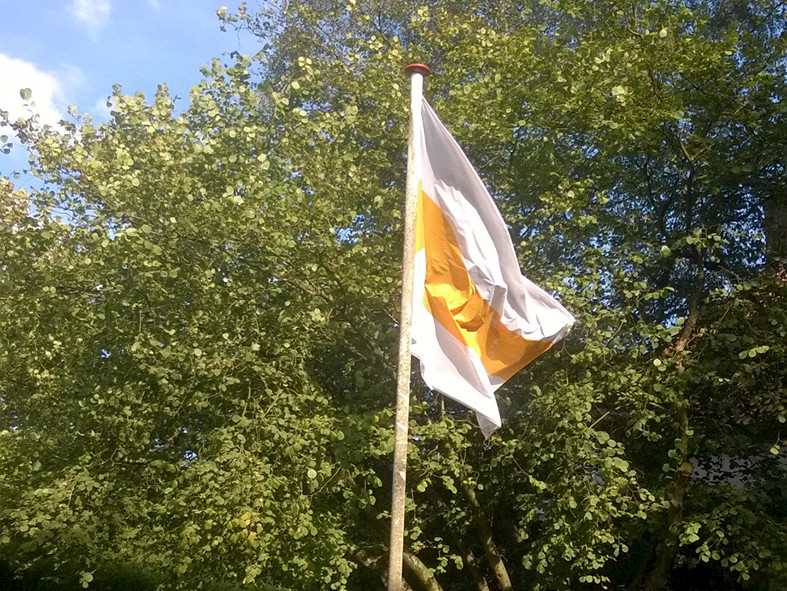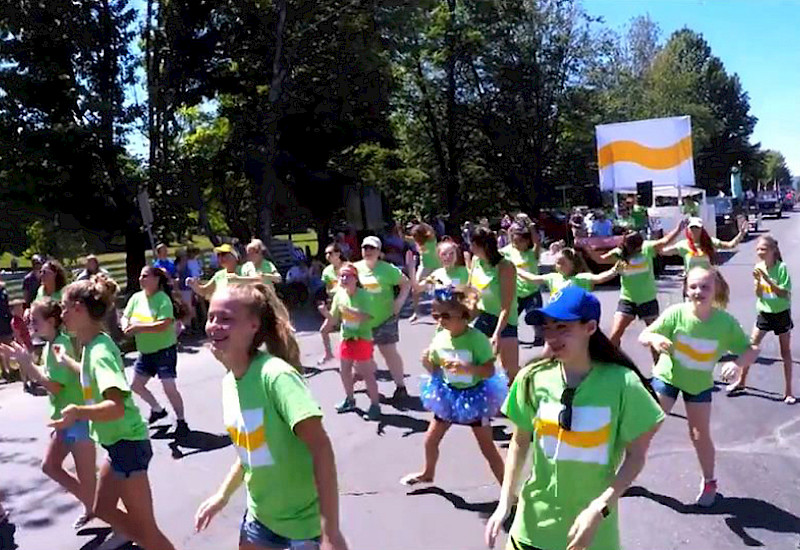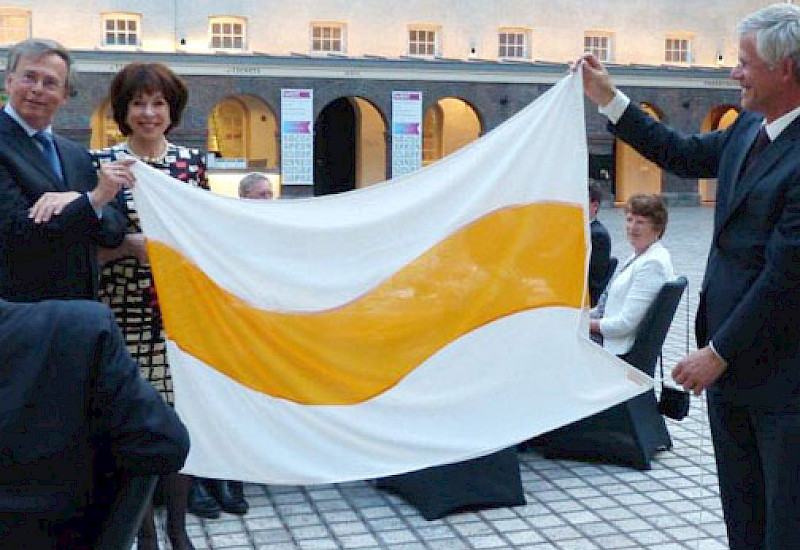A story by Bertil de Klyn
"Compassion is the opposite of envy."

Ellecom, 11th of June, 2016
Compassion and flag
Society, that is to say, our Western society, is based on envy. People fixate on possession and crave to possess more than others. In the USA this is even worse than here, but the virus of envy is spreading rapidly across the world. In the USA this (envious inclination) is reinforced by the books of Ayn Rand, the author of Atlas Shrugged. In her (suddenly) tremendously popular books she advocates the view that people must live as an end in themselves and have but one purpose in life: to gain as much power, wealth and standing as they possibly can. Americans are fully on it, and constantly striving to outdo one another as they go. As the bonus culture and other examples of avarice demonstrate, self-enrichment is also rampantly increasing in the Netherlands and the rest of the world. Even children say that all they want is to make a lot of money to buy expensive things.
Compassion is the opposite of envy. It means to put oneself in someone else’s shoes and to be willing to help, support and share with that other person. It means to view the other as your peer, a fellow civilian, fellow inhabitant of your country, city or village, a fellow earthling, a fellow human being. When that other person suffers we suffer too, and we want nothing more than to improve things for him or her. When there is compassion, refugees and asylum seekers will not be treated as a threat, but as people in need of help. Feeling compassion means to care for them and to be willing to share (some of) our wealth with them. Autistic people are devoid of compassion. They are unable to empathise with other people and so they cannot suffer the pain of others. Of course, they cannot be blamed nor judged for their incapacity to feel compassion. They miss out on the sensitivity that connects normal people and that allows them to naturally interact. Experiencing events only through images, without direct involvement, also hinders empathising with others. The world is reduced to a spectacle, presented as something unreal, which leads to dissociation and results in an autistic perception of it. We should be wary of behaving autistically when we are not.
The Flag of Compassion reminds us of the need to feel compassionate, to open ourselves up to other people and to be willing to sacrifice for the general good. The flag keeps us alert and calls for us not to forget but to promote compassion. And perhaps, if we do, the flag can become its universally acknowledged symbol.
Bertil de Klyn, MD

























